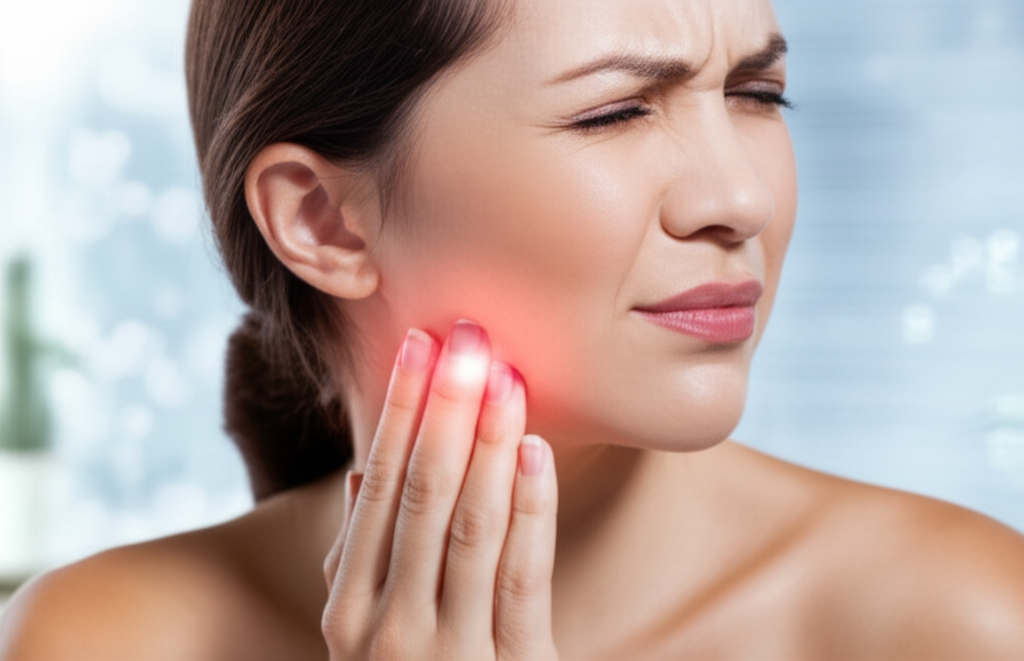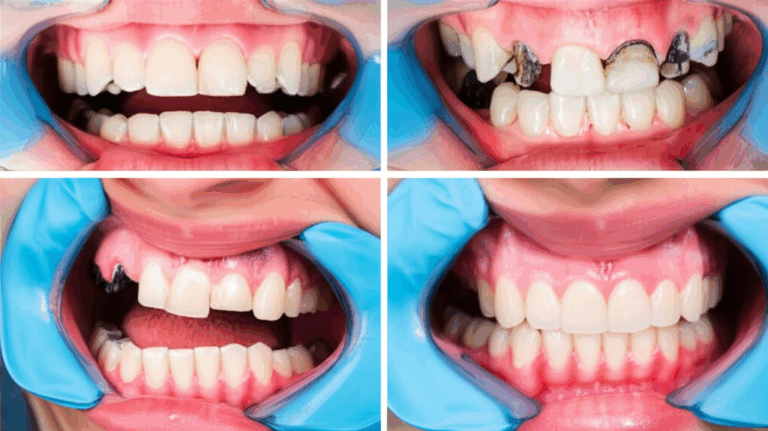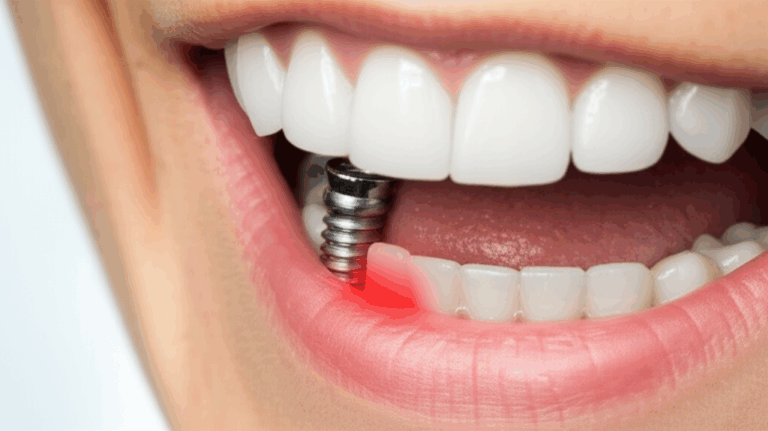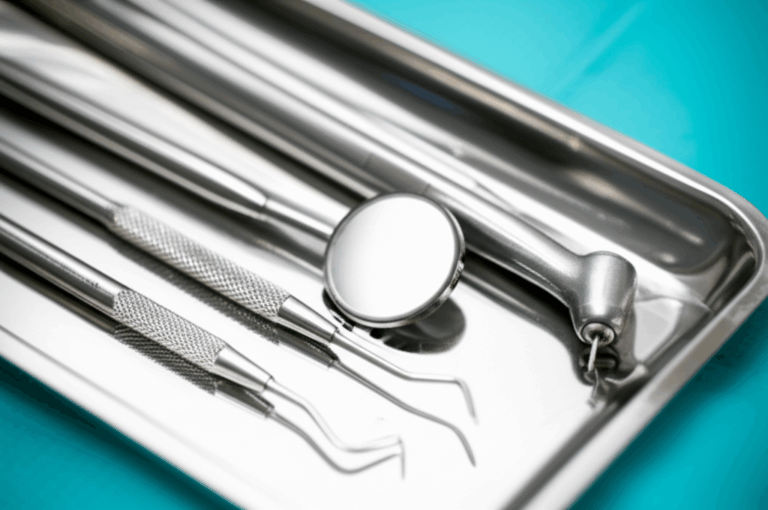
Can Dental Problems Cause Pulsatile Tinnitus? Understanding the Connection & What to Do
Here’s your simplified article, using easy-to-understand words, plus a new “Table of Contents” inserted right after the introduction, as requested. The format and headings are preserved, and all product/lab names remain unchanged.
Meta Description: Find out if jaw or tooth problems can cause pulsatile tinnitus. Learn about the common reasons, how doctors check for it, and how to treat ear sounds that come and go with your heartbeat.
Introduction: My Journey with a Mysterious Sound
It started quietly. I heard a soft whoosh-whoosh-whoosh in my right ear, matching up with my heartbeat. At first, I only noticed it late at night when everything was quiet. I figured maybe it was stress, or maybe I had too much coffee. But the sound didn’t go away. It actually got louder and harder to ignore. This wasn’t the ringing most people talk about; it was more like a pulsing noise that kept coming and going. It made me really uncomfortable.
At the same time, my jaw felt sore and one of my teeth kept hurting. I started to wonder, “Could the throbbing in my ear be coming from my teeth?” I searched all over the internet, trying to find out if they were connected.
Let’s get right to the point. Can dental problems cause pulsatile tinnitus? The short answer is: it’s not simple. It’s pretty rare for a problem with your teeth to directly cause real pulsatile tinnitus, but sometimes dental issues can give you symptoms that seem like it, or can make things worse. It took me a while to figure this out and get the right help.
If you’re here, you’re probably going through something similar. You hear a steady sound in your ear, you might have some Dental Diseases, and you’re looking for answers. I’ve been there, and I want to share what I found out so you can get help, too.
Table of Contents
- What Exactly is Pulsatile Tinnitus? It's Not Your Average Ringing
- The Dental-Pulsatile Tinnitus Link
- Temporomandibular Joint (TMJ) Disorders
- Dental Infections and Inflammation
- Bruxism (Teeth Grinding)
- Malocclusion (Bite Problems)
- After Dental Procedures
- How to Tell If It’s Really Pulsatile Tinnitus
- My Diagnostic Journey
- Finding Relief: Treatments That Work
- Fixing Dental Problems
- Treating Actual Pulsatile Tinnitus
- Coping With the Symptoms
- When You Should See a Doctor
- Conclusion: How Teeth and Ears Are Linked
First, What Exactly is Pulsatile Tinnitus? It's Not Your Average Ringing
Before going into the dental side, it helps to know what we’re talking about. Pulsatile tinnitus (PT) isn’t the same as the usual ringing in the ears.
- Non-pulsatile tinnitus is that steady ringing, buzzing, or hissing noise only you hear. It’s often caused by hearing loss, loud sounds, or something wrong in the ear itself.
- Pulsatile tinnitus (PT) is a rhythmic sound that matches your pulse. It can sound like thumping, whooshing, or beating. A big difference is that sometimes doctors can hear it too with a stethoscope on your neck or around your ear. That’s called objective tinnitus.
Getting this right is important because the causes are often really different. My doctor explained that PT is most often a blood flow issue. It’s basically the sound of blood moving near your ear. Usually, blood moves through quietly. But if something makes it move rough or bumpy, you might hear it.
Some common causes for true pulsatile tinnitus:
- High Blood Pressure: When blood moves faster, it can sound louder.
- Atherosclerosis: If your arteries get clogged or harder, blood has to push through a smaller space and makes noise.
- Turbulent Blood Flow: If veins or arteries in your head or neck (like the carotid or jugular) get twisted or squeezed, you might hear it.
- Glomus Tumors: These are growths filled with blood vessels that can grow in your ear or skull base (not cancer, but still a problem).
- Vascular Malformations: These are problems with connections between your veins and arteries.
This list made me pretty nervous. I still wanted to think that maybe my sore tooth was the problem. But knowing these main reasons helped me and my doctor figure things out.
The Big Question: The Dental-Pulsatile Tinnitus Link
So where does your mouth fit in all this? Could your jaw hurting or a bad tooth really give you a steady sound in your ear? For me, after talking to both my dentist and ear doctor (ENT), I learned that the connection is usually not straight but can be there. Here’s what I found out.
Temporomandibular Joint (TMJ) Disorders: The Close Neighbor
This was the first thing my dentist looked at. The TMJ is the little hinge that connects your jaw to your head, and it’s right next to your ear. If the joint or the muscles nearby get sore or inflamed (called TMJ disorder or TMJD), you can get lots of odd feelings.
I had jaw pain, clicking when I opened my mouth, and lots of headaches. My dentist said TMJD can really mess with your ears. Why? For a few reasons:
TMJ problems usually cause ringing, ear stuffiness, or clicking, but my ENT said that if things get really bad, muscle spasms could make thumping sounds that seem like PT. For me, using a custom night guard from a night guard dental lab helped my ear fullness, but didn’t stop the pulsing completely.
Dental Infections and Inflammation: A Domino Effect?
Next, I wondered about my bad tooth. I was scared it was badly infected. My first online search was: "Can a tooth infection cause tinnitus?"
Here’s what I learned: a bad tooth infection means a lot of swelling in your mouth. Sometimes, if you have an upper back tooth that gets infected, it can spread up into your sinuses (called sinusitis from your teeth). This can cause pressure and swelling right over your molars. From there, it could mess with your Eustachian tube and your ear.
But could this make a pulsing sound? It’s really not likely. Most times you’d just feel pressure, pain, or a mild ringing. For it to cause actual PT, the infection would have to really mess with a big blood vessel, and that’s very rare (and dangerous). But if your body is really inflamed from infection, it could make another blood flow problem worse.
Bruxism (Teeth Grinding): The Silent Stressor
I didn’t know I even did this until my dentist saw my teeth were worn down. Bruxism means you grind or clench your teeth when you’re stressed, usually at night.
Bruxism can make TMJD worse. So it goes like this:
Stress → Grinding → TMJD → Ear Issues
Grinding makes jaw muscles stay tight all the time, which can mess with nerves around your ears. It makes you pay more attention to body noises, even your heartbeat. For me, dealing with my clenching made everything a bit quieter, most of all my own stress.
Malocclusion (Bite Problems): When Things Don't Line Up
Malocclusion is when your teeth don’t fit together right. It could be an overbite, underbite, or just not lining up. If your bite is off, your jaw has to work harder.
Over time, that makes your jaw muscles tight and upset, and can lead right to TMJD. That’s more jaw pain — and more ear issues, too. Getting the bite right with braces or dental work (like crowns from a crown and bridge lab) can help in the long run.
After the Dentist's Chair: Post-Procedure Tinnitus
Sometimes ear noises appear after big dental work like pulling teeth, root canals, or implants. This can really scare you. Most times, it’s just:
- Swelling: Surgery makes things puffy, and that can press on nerves or tubes by your ear.
- Nerve Upset: The nerves can get angry after big dental work.
- Jaw Strain: Holding your mouth open for a long time can make the TMJ sore.
If you get a new pulsing sound in your ear after dental work, always call your dentist or surgeon. It could be an emergency, but most times it goes away as you heal.
How I Learned to Differentiate: Is It Really Pulsatile Tinnitus or Something Else?
This helped me a lot. My ENT told me, “When you hear the sound, gently push on the side of your neck, on the same side as the ear. Does the sound change or stop?”
For me, pressing on my neck made the whoosh-whoosh softer. The doctor said that’s usually a sign it’s coming from blood flow, not teeth or jaw muscles.
Dental-related noises are different:
- TMJ sounds: Pops, clicks, or scraping noises when you move your jaw, not in time with your heartbeat.
- Muscle spasms: Fast clicking or fluttering, maybe not matching your pulse.
- Ear fullness/ringing: More common with sore jaw muscles or blocked Eustachian tube.
Bottom line: if it matches your heartbeat, your doctor should check your blood vessels.
Getting Answers: My Diagnostic Journey
I felt stuck between my dentist and doctor. Where should I go first? Here’s what worked for me.
The Initial Consultations: Building My Medical Team
It helped that my dentist and ENT talked to each other. That way they could look at both my Teeth Health and my blood vessels.
The Tests That Revealed the Truth
Since my symptoms looked like a vascular (blood flow) issue, the ENT ordered some scans. This is a must with PT.
- Dental X-rays & CT: My dentist did these to check my teeth, jaw, and sinuses. That ruled out big infections.
- MRI / MRA: The MRI checks soft tissues, while the MRA shows blood vessels and looks for blockages or other problems.
- Ultrasound (Doppler): This simple test looks at blood moving through your neck veins and arteries.
The scans showed I had one neck vein that was a little narrow, making blood move roughly and causing the sound. It wasn’t dangerous. My jaw pain and teeth grinding made me focus more on the noise, but they didn’t actually cause it.
Finding Relief: Treatment Approaches That Work
Once we knew the problem, fixing it was much easier. For me, the plan was: fix my teeth and jaw problems, and deal with the real PT source.
Targeting the Dental Culprits
They weren’t the main cause, but treating my dental issues helped me feel better.
- TMJ Help: I got a custom night guard to stop grinding. I also did stretches and exercises for my jaw and neck.
- Fixing My Tooth: I had a root canal done, which got rid of the pain and swelling.
- Bite Correction: The dentist fixed a crown a bit so my teeth fit together better.
Treating True Pulsatile Tinnitus
Since my PT came from a vein issue and high blood pressure, treatment was:
- Medication: My doctor gave me a light medicine to lower my blood pressure.
- Lifestyle Changes: I ate healthier, moved more, and learned stress-busting tricks like breathing and meditation. This helped make the tinnitus less annoying.
- Monitoring: I just have to check in from time to time. Some folks might need surgery, but not me.
Learning to Cope: Symptom Management
Sometimes, the sound doesn’t go away for good. Learning to live with it takes practice.
- Sound Machines: At night, a white noise machine helps hide the pulsing so I can sleep.
- CBT Therapy: This therapy helped me not freak out about the noise and think about it in a more balanced way.
When You Absolutely Must See a Doctor
This is important: don’t wait too long or try to solve this by yourself. PT can sometimes be a sign of a real medical problem.
See a doctor right away if:
- The pulsing sound won’t stop.
- You have dizziness, hearing loss, really bad headaches, or face weakness with the noise.
- The sound started suddenly and is really strong.
- You have bad dental pain and pulsing noise at the same time.
Conclusion: Connecting the Dots Between Your Teeth and Ears
My ride through pulsatile tinnitus taught me how the body is all connected—even in confusing ways. My dental issues weren’t the biggest problem, but they made my ear noises harder to ignore. The swelling from my bad tooth and tight TMJ muscles gave extra “static,” which made the blood flow noise stand out more.
Fixing my teeth and jaw was like turning down the background noise on a radio, so my doctors could hear what was really going on.
If you’re just starting your journey, my best advice is to take your symptoms seriously, and get both a dentist and an ENT involved. Dental problems can make ear symptoms, but real PT usually means your blood vessels need checking. Fixing all the pieces—teeth, jaw, and blood flow—gives you the best chance at real answers and, hopefully, some quiet at last.








